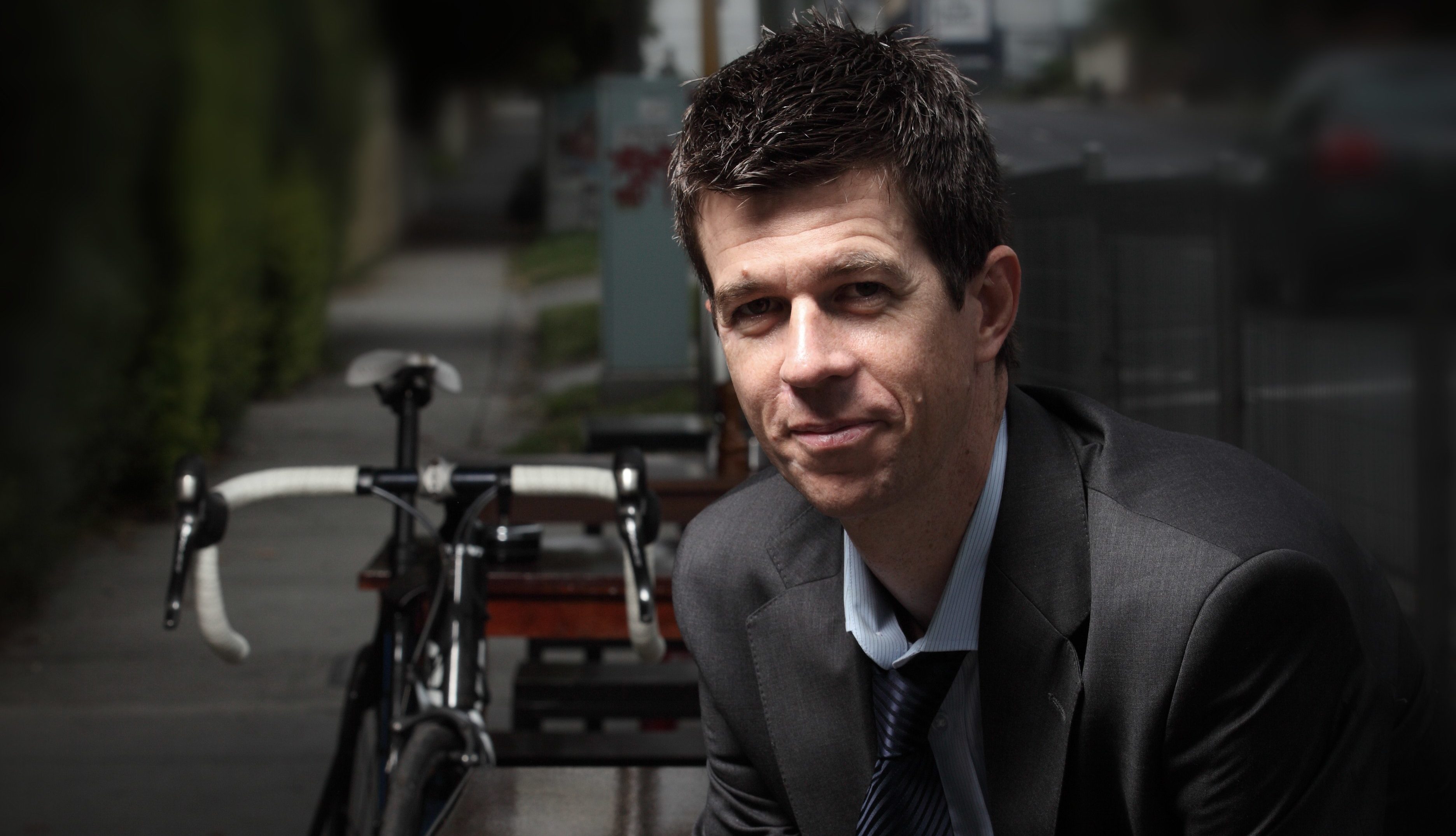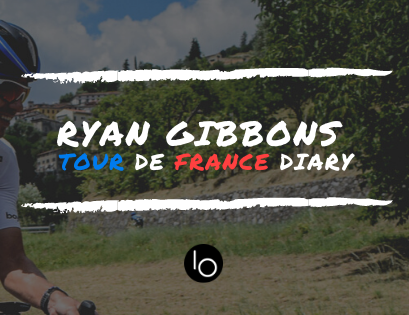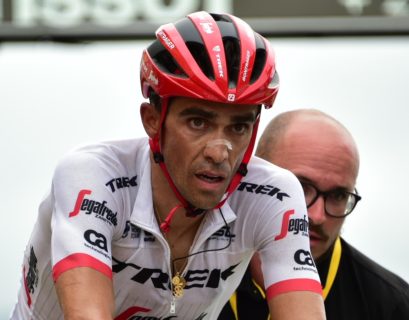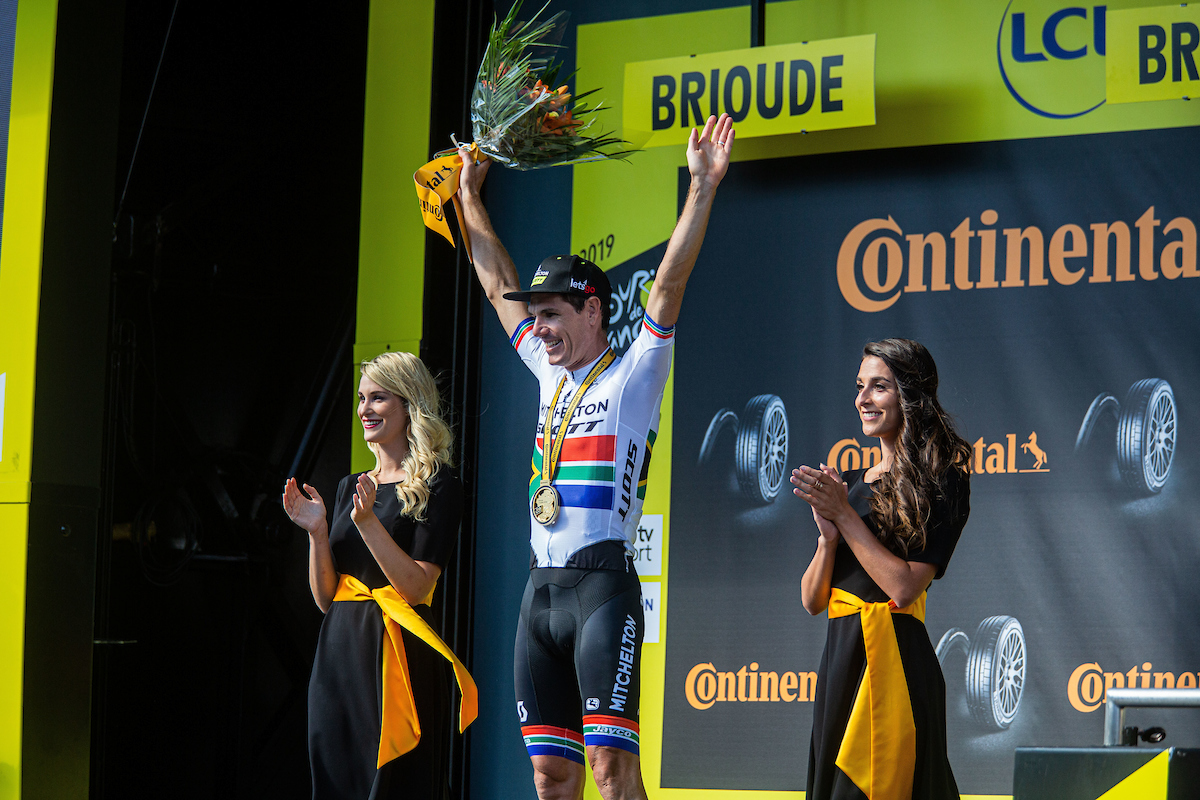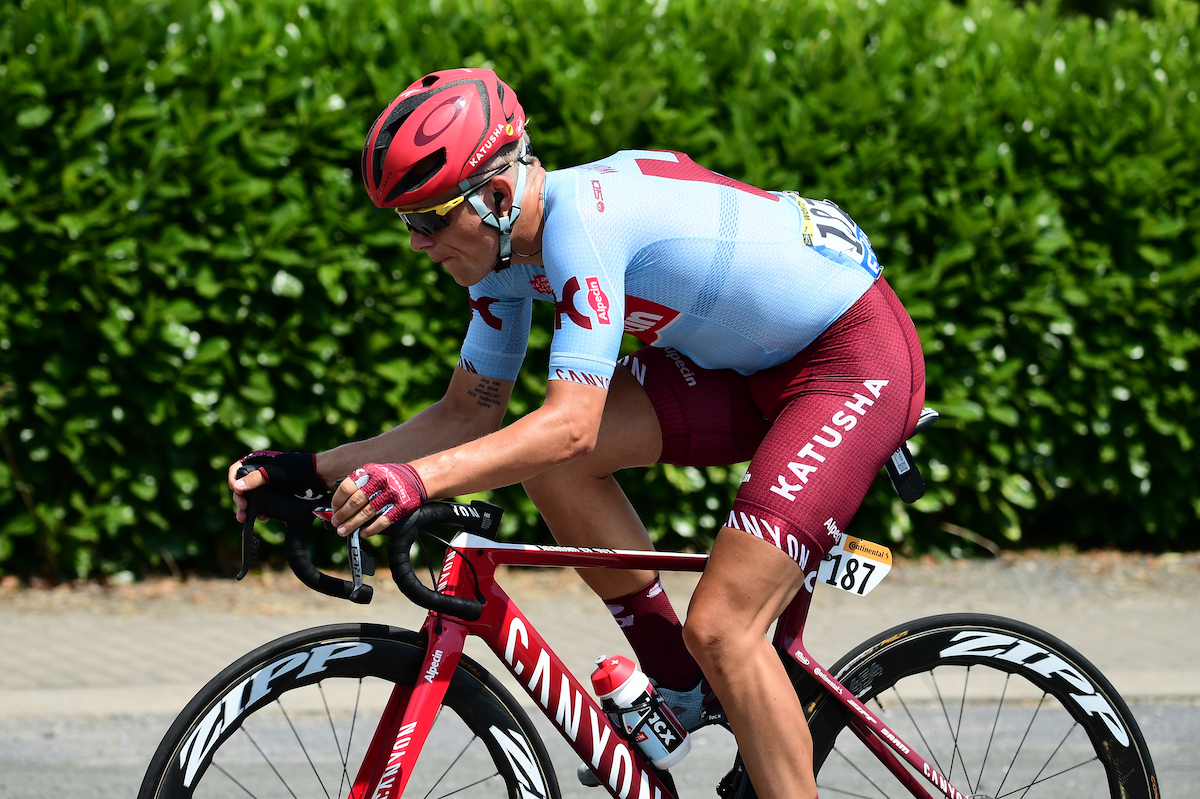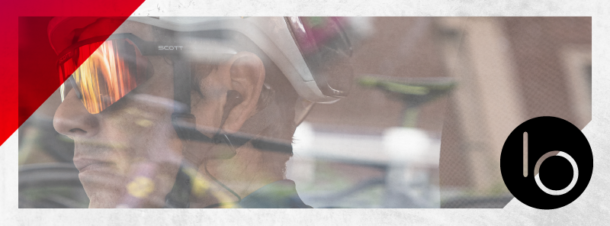When Warren Barguil won his first Grand Tour stage on debut in the Vuelta a Espana in 2013, his grandfather who got him into cycling had passed away only a few months before. As he crossed the finish line, he was pointing to the sky and with tears trickling down his cheeks. In that moment, I realised I have one of the best jobs in the world. As a cycling commentator I get to be so close to the action and part of those special moments in the sport. You’re riding the emotions with the athletes and you get caught up in it.
Commentary is where you get as close to the action as you can possibly be without actually riding the race. Calling the sprints is my favourite. The commentary box is always stationed on the finish line so you are so close to the action. There’s been occasions where I’ve been on the edge of my seat and thrown to the line and crashed to the floor because you’re so into the moment.

Photo credit: ASO/Bruno BADE
One of the other things I love is getting insight into the riders. Some of them are such interesting people. Guillaume Martin, a young guy who rides for Wanty – Groupe Gobert, earned a master’s in philosophy in the same year that he won a stage in the Tour de l’Avenir. Domenic Pozzovivo plays the piano and also did a masters with a thesis on Italian politics in the south.
Those insights are what paints a picture for the viewers of the person, not just the bike rider, and makes it more interesting during the dull moments of the race.
One way of getting interesting info is talking to the teams’ chefs, mechanics and soigneurs. Their media guard isn’t on overdrive and won’t give you the same PR spin as the marketing staff or management. It’s a great way to get the gossip and really find out what’s happening inside a team.
I’ll also talk to the other commentators, particularly if there is an obscure rider. I’ll go and hunt out a journalist from that rider’s country and get more of the background that you can’t necessarily find from doing a search online. What I’m looking for is a fresh perspective from that athlete so that I can bring that to the audience.
Last year was the first time we commentated on every stage from start to finish. The course, for the first week of the Tour, was really boring. We had 200-plus kilometre stages that offered nothing for a breakaway to survive. I remember on the stage where Cavendish crashed out and Sagan was disqualified, Guillaume van Keirsbulck was away on his own for about 200 kilometres. That was a real challenge for us. There was nothing happening. He knew the peloton was going to catch him. They were just playing with him like a cat flicking a mouse’s tail. We were looking for things to talk about and luckily my commentary partner Robbie McEwen knew Guillaume quite well and had his parents in a VIP car at the Tour Down Under months before. We had some stuff to talk about but not 200 entertaining kilometres worth.
On the flatter stages, Robbie will ride the last 20 – 30 kilometres and that will gives us an extra bit of knowledge that you can’t get from the race handbook. Stuff like potholes and how tight certain corners are, if there’s some gravel on the road and the direction of the wind. Robbie’s cycling IQ is through the roof so he get’s us that closer to the action. It’s a real privilege to work with him.
How do I go to the loo while on air? This is a question I get all the time. When I was commentating on my own at the Vuelta, I would go into the commentary box dehydrated. Enough to keep some moisture in my mouth for talking but not enough that I’d need to go to the toilet.
Now that I have Robbie with me, I still go in there a fraction dehydrated but if I know that nothing will happen with 140km to go, I’ll duck out quickly. If I think there will be action during the stage, I just have to hold it in, particularly during the last 100 kilometres. It’s an unhealthy way to work so I always end up ordering a one litre bottle of water at dinner because that’s the only time of day that I drink.
In the commentary box, I have a TV screen that shows me exactly what everyone at home is seeing – nothing extra. Then I have a computer screen with the basic graphics that you can also get on the Tour de France app. Then I have my notes and highlighter pens. I have a highlighter system. Are you ready for it?
Yellow = general classification contenders
Green = sprinters
Blue = for the breakaway
Pink = wildcards who can surprise on the stage
Orange = supplementary breakaway
I also have one of those pens that have four colours on it, so I can make changes or circle a particular rider as we’re going along. A very sophisticated system, right? It’s analog but it works.
The day the green jersey winner found his inner nerd. Welcome to the highlighter club. #sbstdf #tdf18 https://t.co/n0lfqL0Anv
— Matthew Keenan (@mwkeenan) July 4, 2018
Your basic maths has got to be pretty good on the fly in case a jersey is changing hands. And I was terrible at maths at school. Why can’t a minute be 100 seconds? Why does it have to be 60 seconds? Getting that right is an important job because viewers are relying on you in case the yellow jersey is moving to another rider.
When the time gaps are really close, that’s one of the most anxious moments I have in the commentary box. You’re doing the maths in your head while the producer might be talking to you plus you’re trying to listen to race radio or what your co-commentator has to say.
Race radio is where they speak to the convoy of team cars telling them which rider needs help or is calling for assistance. That’s where you hear all the mechanics of the race. We get a lot of value from race radio because you know which rider is going back to the team car to collect fresh bottles. You get a lot of insight as to who is playing what role in the team.
The loudest commentators in the compound are the Norwegians. I don’t speak a word of Norwegian, but I know exactly what message they’re conveying when Edvald Boasson Hagen is anywhere near the front of the race. They go from commentators to pure fans. I love their energy. Last year when he won a stage solo, they were singing, “Eddy the boss, Eddy the boss,” for the last 200 metres. The commentary box is pretty solid but it shakes when Eddy is at the front.
My prep for the following year starts the day the Tour ends. Even if I had a normal job and worked in an office, I’d be online checking cycling results and reading stories anyway. Now I get to do it as a job. I’m really lucky.

